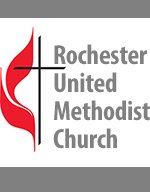Gospel of Mark 7: 1-8, 14-15, 21-23
Now when the Pharisees and some of the scribes who had come from Jerusalem gathered around him, they noticed that some of his disciples were eating with defiled hands, that is, without washing them. (For the Pharisees, and all the Jews, do not eat unless they thoroughly wash their hands, thus observing the tradition of the elders; and they do not eat anything from the market unless they wash it; and there are also many other traditions that they observe, the washing of cups, pots, and bronze kettles.) So the Pharisees and the scribes asked him, “Why do your disciples not live according to the tradition of the elders, but eat with defiled hands?” He said to them, “Isaiah prophesied rightly about you hypocrites, as it is written,
‘This people honors me with their lips,
but their hearts are far from me;
in vain do they worship me,
teaching human precepts as doctrines.’You abandon the commandment of God and hold to human tradition.”
Then he called the crowd again and said to them, “Listen to me, all of you, and understand: there is nothing outside a person that by going in can defile, but the things that come out are what defile.”
For it is from within, from the human heart, that evil intentions come: fornication, theft, murder, adultery, avarice, wickedness, deceit, licentiousness, envy, slander, pride, folly. Al these evil things come from within, and they defile a person.”
Did You Know? — Source, “The Pastor’s Bible Study,” New Interpreters Bible Study
• Jesus uses criticism and confrontation by the Pharisees and Scribes as a teachable moment about purity laws that separate people.
• He brings a new teaching about the practice of external purity and what defiles a person.
• The food one eats, washing one’s hands before eating (which was not about hygiene but a religious practice) does not matter, Jesus says. He essentially calls his opponents hypocrites who are superficial in their worship and commitment to God.
• The text is one of inclusiveness.
• All are welcome at God’s table.
• Jesus teaches against ritual laws that separated Jews and Gentiles from eating together. It is what is in our hearts that matters.
• “For it is from within, from the human heart, that evil intentions come…” Mark 7:21.
• Question to reflect on: Do Christians today practice exclusion of others based on their external appearance?
Some Thoughts on Today’s Reading: Mark 7: 1-8, 14-15, 21-23
We can sometimes go through the motions in our lives and in church. We can participate in the rituals of the worship service as well as mission and ministries with the best of intentions as we seek to follow Jesus Christ.
But what is really going on in our hearts? Are we acting out of love and commitment to the teachings of Jesus? Do our rituals have God at the center? Are we more connected to our human traditions than to God’s teachings? Do we open our doors to all those who come in peace who desire to worship and serve in fellowship and welcome?
In this teaching from the Gospel of Mark, Jesus is confronted by the Pharisees and Scribes because his disciples have not washed their hands before eating. This is not about cleanliness, it is about respect for ritual purity laws that are human created traditions of the time.
For the religious leaders, a person’s purity in the eyes of God is based on human traditions involving handwashing and other things. Jesus says no. It is what is in a person’s heart that matters. God knows who we are no matter what we look like.
And, Jesus points out, when we have a of heart of God, our actions and words reflect this.
There were many times that Jesus took issue with ritual practices and mindsets of the time. This was a culture in which it was believed that men were purer than women and birth status was important. Lack of physical wholeness reflected a lack of purity. Jesus, however, broke bread and spent time with women and people who suffered with many physical conditions that the culture viewed negatively. He was interested in people’s hearts and he welcomed everyone.
May our own hearts be strengthened by God as we seek lives of goodness and welcome.
Grace and Peace,
Pastor Pam

Rev. Pam Brokaw pastors both the Rochester and Oakville United Methodist Churches.
She is a graduate of the Seattle University School of Theology and Ministry, where she earned her Masters in Divinity.
